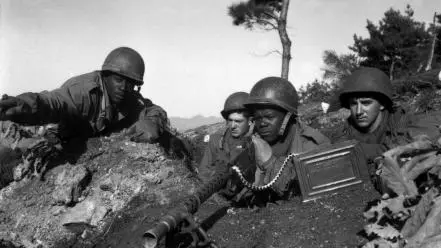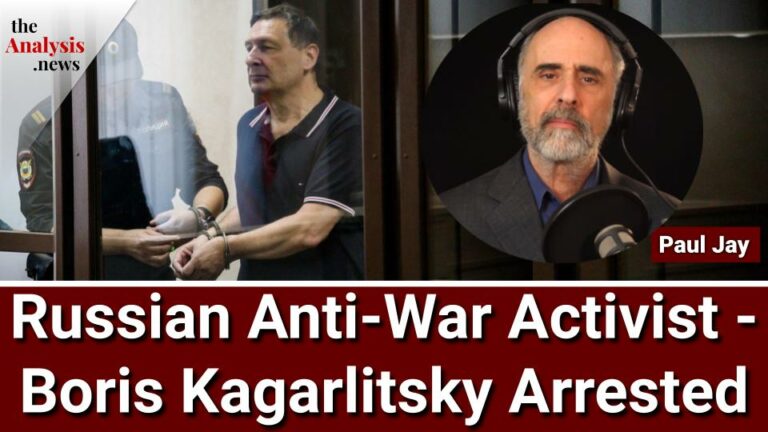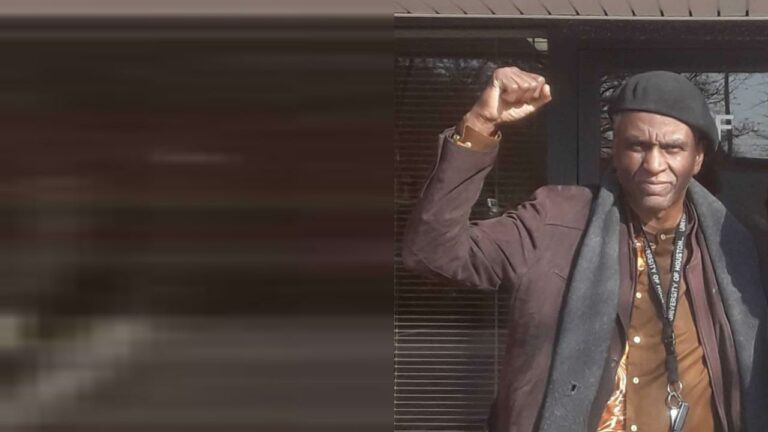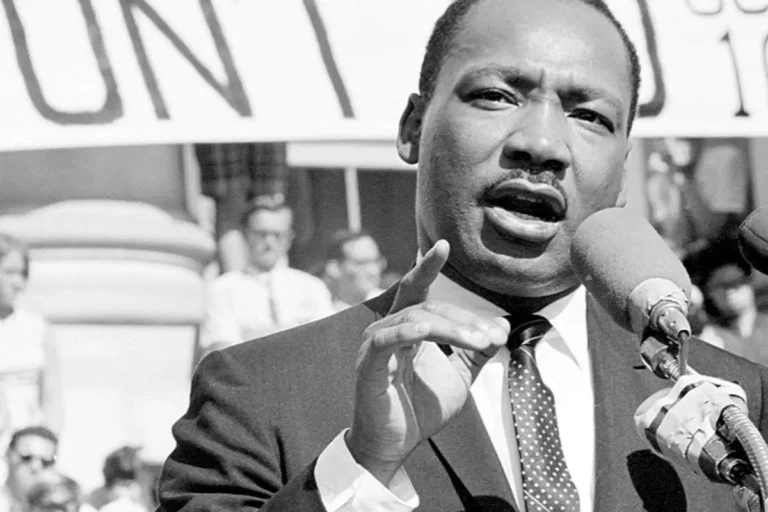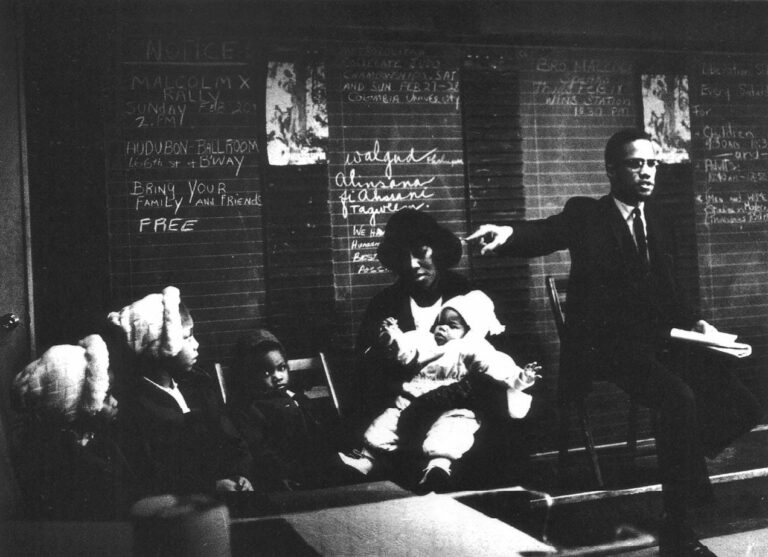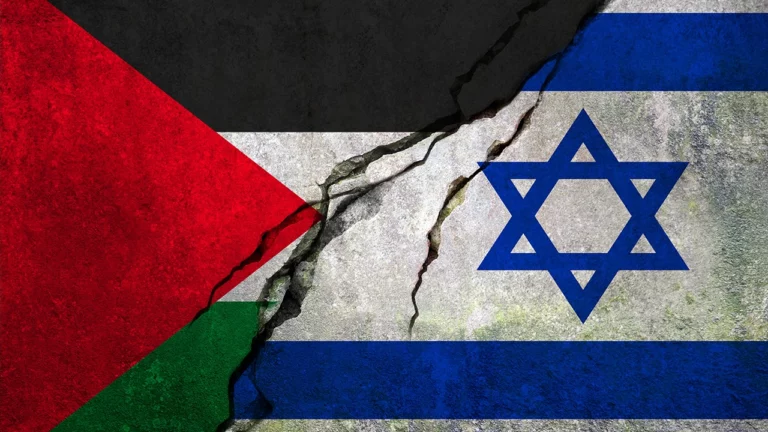Patriotism and Lynching – Bob Moses on Reality Asserts Itself Pt 2/9
Sad news that Bob Moses, a leader of the civil rights movement, died on July 25, 2021. We commemorate his work with a replay of his appearance on Reality Asserts Itself with Paul Jay, first released on June 20, 2014. Mr. Moses describes growing up in post-World War Two, cold war America.
STORY TRANSCRIPT
PAUL JAY, SENIOR EDITOR, TRNN: Welcome to The Real News Network. I’m Paul Jay in Baltimore. And welcome to a new edition of Reality Asserts Itself.
Robert Parris Moses became one of the most influential leaders of the black civil rights movement in the 1960s and afterwards. Martin Luther King called his grassroot organizing an inspiration.
Moses was one of the leaders of the 1964 Mississippi Freedom Summer project. He was also an organizer for the Mississippi Freedom Democratic Party in 1964.
And we now have the pleasure of Mr. Moses joining us in the studio.
Thanks very much for joining us, Bob.
BOB MOSES, EDUCATOR AND CIVIL RIGHTS ACTIVIST: Right.
JAY: And I should say Bob Moses, ’cause I think that’s how you’re known.
MOSES: Right. Yeah.
JAY: Bob, Robert Parris Moses.
…
Bob Moses is an educator and civil rights activist. During the 1960s, he was the field secretary for SNCC, the Student Nonviolent Coordinating Committee, as well as the main organizer of the Mississippi Freedom Summer project that helped register black voters in the Deep South. He was also an outspoken critic against the Vietnam War. From 1969 to ’75, he worked as a teacher for the Ministry of Education in Tanzania. In 1982, he received a MacArthur Fellowship, and he used those funds to develop the Algebra Project, an organization aimed at improving math and educating–an organization aimed at improving math in poor communities. … an organization aimed at improving math education in poor communities. Bob is also the author of Radical Equations: Civil Rights from Mississippi to the Algebra Project and coeditor of Quality Education As a Constitutional Right: Creating a Grassroots Movement to Transform Public Schools. He’s also earned a master’s in philosophy from Harvard.
Thanks very much for joining us.
BOB MOSES, EDUCATOR AND CIVIL RIGHTS ACTIVIST: Right.
JAY: Now, how big an impression, how much was it part of your formation, World War II? You’re ten when it’s over, and then the years as you’re becoming a teenager, it’s the thing people are still talking about all through the late ’40s. And what’s your sense of being an American at this point and what that means as a black American?
MOSES: So I have a sense during the war–I mean, what I remember about the war is standing on long lines to get some sugar. Right? There is no A&P in Harlem, so all this time while we were growing up, twice a month my mother, my brother, and I, we walk roughly a couple of miles, going and coming, to the nearest A&P, which is in the Bronx.
JAY: Meaning there’s no grocery store in Harlem.
MOSES: No A&P. This is–there are little mom-and-pop kind grocery stores, but no place where on my father’s salary we could feed our family. Right? So twice a month we go up, walk across the bridge up to this nearest A&P.
But during the war, you stood on long lines to get margarine or sugar, right, ’cause they were rationing that. And so that’s my big memory about the war. And my aunts, my father’s sisters, who are–you know, there’s a lot of street stuff in terms of clothing, nylon stockings, right, all of this is scarce, right?
JAY: But in terms of what the war was about, there’s a tremendous amount of, you know, propaganda to develop more patriotism amongst Americans.
MOSES: Well, we’d play games. So we had this game that we’d play. You take a ball, right? Five of us gather in the pit. What was great about the projects is you had this pit, right? It took up–part of the projects I lived in, took up three blocks. So they had two pits in this. And you can play down in the pit. There were benches around it, trees. Parents could watch, right? So one of the great things was I could fall out of the house and go outside and stay all day, right? But we had a game we played. You get a ball. You throw it high as you can up in the air. Everybody is a country. And you say, “I declare war on —-“, right, and you name a country. So the country that’s named has to come back, catch the ball. Everybody else runs, right? And then his job is to hit somebody with the ball. You know, it was a little rubber ball. So he has to throw it and try to hit. That person that’s hit then comes back and declares war.
And we did a lot of marching. I just remember, you know, we’d get four or five, and it’s left, right, you know, and we’re marching in order, turning. And the thing was, you’d give a string of ten commands, right? Double to left, right flank, so forth. Right? And then everybody has to follow those commands. Right?
JAY: But do you internalize what a lot of people from that generation did, especially white people, that this is America has fighting for freedom [sic] and America stands against fascism and against dictatorship and–
MOSES: No. Here’s what it happened to me.
JAY: –we won the war for everyone’s liberation and such.
MOSES: What happens to me is that in high school, right, I’m going to school with Al Prettyman–I mean (I’m sorry) Al Poussaint. (I went to college with Prettyman.) So Dr. Poussaint–and I don’t know if you remember Dr. Poussaint with the Cosby show. He was the psychiatrist who really set the tone for the Cosby show. Anyway, we’re at Stuyvesant together. His father is a printer, right, and owns a little printshop. The only people who will give him business are the communists in New York City, right? So Al ends up going to what we call the–.
JAY: ‘Cause it’s a black-run printshop.
MOSES: It’s a black-run printshop. Right. So he gets business from the communists, right? So Al ends up going to what we called the red diaper baby summer camps, right? So I actually go to a summer camp.
…
So Al–we’re talking about Dr. Poussaint, Al Poussaint, right? We’re in high school together, and his father has a printshop. But the only people who will actually give him work are the communists in New York. So Al ends up going to the red-diaper baby summer camps, right? Camp /woʊˈtʃikə/ and some others, right? So I try for one summer, but I don’t like it, ’cause what they do is they walk around singing songs, right? But in the winters they go to the hootenannies downtown in the Village, right? And I’d tag along, ’cause my brother and Al liked the camps. They became junior counselors and then counselors and so forth. But at these hootenannies, the people like Pete Seeger are singing. And this is where I learn about lynching and this country. Right?
JAY: You started to get a sense of the South.
MOSES: Yes, I started to get a sense of the country, right?
And I had some confrontations at Stuyvesant, one confrontation with Mr. Eifert. Stuyvesant was on a split schedule, right? So you go in the afternoon when you’re in the tenth grade, so from 1:00 to 5:00, right? I actually tested out, so I got into a special group within Stuyvesant. And so we had an extra class. Started at 12:00, right? We had our homeroom teacher, Mr. /bluː/. He was a kind of–a really kind of smooth older person. He taught chemistry. No problems there. But after the first year, we switched to the morning program. We get a new homeroom teacher. He comes into our homeroom and starts to pick on me. I’m the only black kid in his class, right? And I think he’s picking on me because the idea that this is a special class–and these kids have above normal IQs in Stuyvesant, right? But the only person who really supports me coming out is /pəˈgænoʊ/. He ended up–we were on the basketball team together, but he said, oh, he’s a shit. You know. But no one else is really saying anything about this. We actually are kind of standoff enemies for the next two years, Mr. Eifert and myself, right? And we end up actually throwing something at each other. But I didn’t have any sense of my rights as a student. This was just [crosstalk]
JAY: Go back to the hootenannies, when you’re–.
MOSES: So what I’m saying is I had begun to see at Stuyvesant, right, some picture about the country, right? But at the hootenannies, there were FBI agents. I was always [commenting?], “Do you see that guy over there? He’s an FBI agent.” This is the ’50s, right? The whole issue of McCarthyism is beginning to raise its head, right?
So when I get to college–I turn 18 in January 1953, in the middle of my freshman year, and I’ve already really thought through something about my situation vis-à-vis the country. We have a draft, and I have to register with my draft board. And so I write the letter to them and say, well, I don’t think I want to fight in any of the country’s up-and-coming wars, right?
JAY: Why?
MOSES: And so I didn’t think I wanted to fight in any of the up-and-coming wars, right?
JAY: Why?
MOSES: Because I didn’t think I wanted to fight for this country in any of its up-and-coming wars, right? We had just finished the Korean War, right, and so one of my friends had gotten shot down and didn’t come back from Korea. And I’m thinking now about the country, what’s going on in the country, what I’m learning through these hootenannies, and stuff like that. I’m thinking back about Uncle Bill, right?
JAY: What’s an example of what you’re learning in the hootenannies?
MOSES: Well, it seems like every other month there’s a lynching in Florida. I mean, it just–you know, there’s always an announcement about a lynching taking place. You know?
JAY: We’re going to continue this discussion with Bob Moses on Reality Asserts Itself on The Real News Network. Please join us.
END
Podcast: Play in new window | Download
